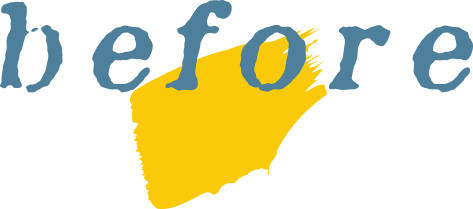We now manage them automatically, every day, constantly; they are part of our life, of our routine, they determine our way of working, our relationships, our communication.
Yet we don’t give them so much importance, sometimes we respond automatically and open them without thinking: our relationship with emails is often mechanical, routine. There is no real education in the use of a tool that permeates our existence in a decisive way. Knowing how to manage emails, and how to create great ones, is sometimes crucial.
Let’s see together some aspects that you may not have thought of but that could completely change your way of communicating..
It is impossible not to communicate
Let’s start with Watzlawick, who in his Pragmatics of human communication argued that “it is not possible not to communicate”, that is, that every type of response, even non-response, implies a message. This is certainly also true for emails: our way of responding will provide the interlocutor with a message that goes beyond the reply itself. For example, if we do not reply to an email, it goes without saying that the interlocutor will feel ignored. Similarly, if our email is short or implicitly poorly written, we will be transmitting a feeling of little importance. Maybe there is nothing wrong with this kind of answers (it depends on who we have on the other side), the important thing is to be aware of it and not to transmit a message other than the one we want to give.
In the shoes of the other
It is clear that all communication arises from the desire or the need to convey information. This need of ours, however, must meet the desire or need of the other to receive them. The information that we will be able to transmit will in fact be equal not to what we will say, but to what the other is willing to listen to.
A good rule of thumb would therefore be to write emails that are commensurate with the recipient’s availability rather than our need to transmit information. So let’s put ourselves in the other person’s shoes, asking ourselves, for example, how much time he can devote to our email and what interest he will have in reading it. Try this and notice if by chance your writing changes.
Less is more
In a now famous letter Pascal opened the speech thus: “I apologize for the length of my letter, but I have not had time to write a shorter one”. The ability to synthesize, to refine one’s texts and to eliminate useless parts is a real art, which can make our communication infinitely more impactful, powerful and effective (as well as practical). So practice the art of essentiality, of saying more with less, and you will see that even your interlocutors will appreciate.
Hear the voices
Sometimes the reader imagines a voice speaking in his head (maybe it’s happening to you too at this very moment). This makes us understand how even the cold reading of a written text acquires a component of “theatricality” that can have a certain emotional impact.
It is therefore essential to consider this more emotional aspect that words can convey, for example by choosing a particular lexicon, or a construction of the most impactful period. Creativity in this sense can be cultivated, the important thing is to first ask ourselves what effect we want to generate on our reader and imagine how we can achieve it using “the magic of words”.
Altri articoli
Less stress and more energy thanks to Trust Management
Any corporate context is formed in its fundamental essence by the relationships that develop and define it. And every human relationship is based on the presence (or lack) of trust. This is why it is so important to know how to evaluate, support, improve and develop...
How to get the most out of synergies thanks to collective intelligence
Every group, as we know, forms within itself an entity that is greater than the sum of its parts. But how is it possible to exploit this added value without it becoming, as often happens in the company, a dispersive and inefficient movement? One of the simplest and...
Reduce accidents by changing the perception of the concept of safety
Several studies have shown that business accidents are due in 80% of cases to human errors. Starting from this data, it is obvious that to reduce injuries it is more appropriate and effective to start from the analysis of human behavior, to then understand how to...
How to turn others from enemies into allies
According to Alfred Adler, one of the fathers of psychology, almost all our problems derive from interpersonal relationships: if you think about it, all our emotions derive from something that, from our point of view, does not work in relationships with others. In the...
How to break free from competitiveness with colleagues
We have all perceived, at least once in our life (and perhaps much more than one) a sense of competitiveness; in reality, if you pay attention to it, you will find that competitiveness affects us in almost all life situations, from social ones, in which we want to...
Enhance intuition in the company thanks to the Management Constellations
What do Barak Obama, Albert Einstein and Elon Musk have in common? It goes without saying that they are characters of great intelligence, but what really unites them is their great capacity for intuition. Why is intuition important in the company? Intuition is...
Courage in the company: the key to your success
"Having courage" in your business environment means much more than "throwing yourself" or "taking risks", having courage is a concept that has a profound value, it has to do with our identity and the meaning it has for we our life in terms of personal fulfillment. An...
Mindfulness as a resource to work better and with less effort
In recent years you have often heard about mindfulness and the benefits it brings, both personally and professionally, for those who practice it consistently. But exactly why can it be beneficial for our well-being in the workplace? What concrete benefits can it bring...
Developing well-being in the company through emotional intelligence
Everyone talks about IQ, but there is another type of intelligence, equally important because of its enormous impact on our well-being and our decisions: emotional intelligence.First theorized in 1990 by Daniel Goleman, IE can make a difference in the workplace,...
Stop to go faster: how smart breaks can boost productivity
Let's face it: in 2022 the idea that to get the most we must squeeze as much as possible for eight consecutive hours (or more) is no longer credible.Numerous studies confirm that an employee engaged for 8 consecutive hours will see his performance curve drop...











